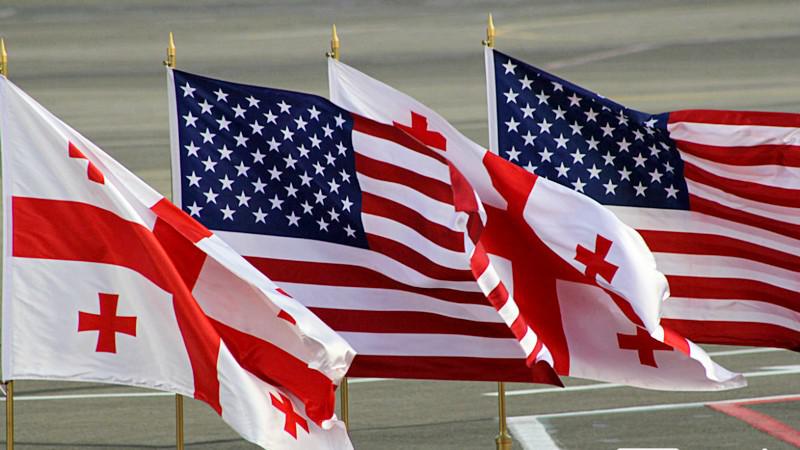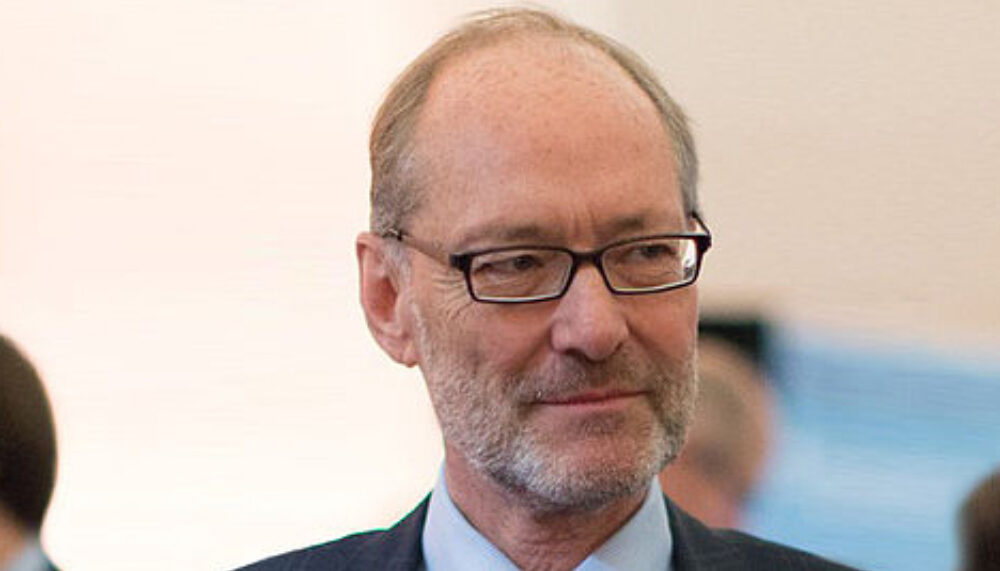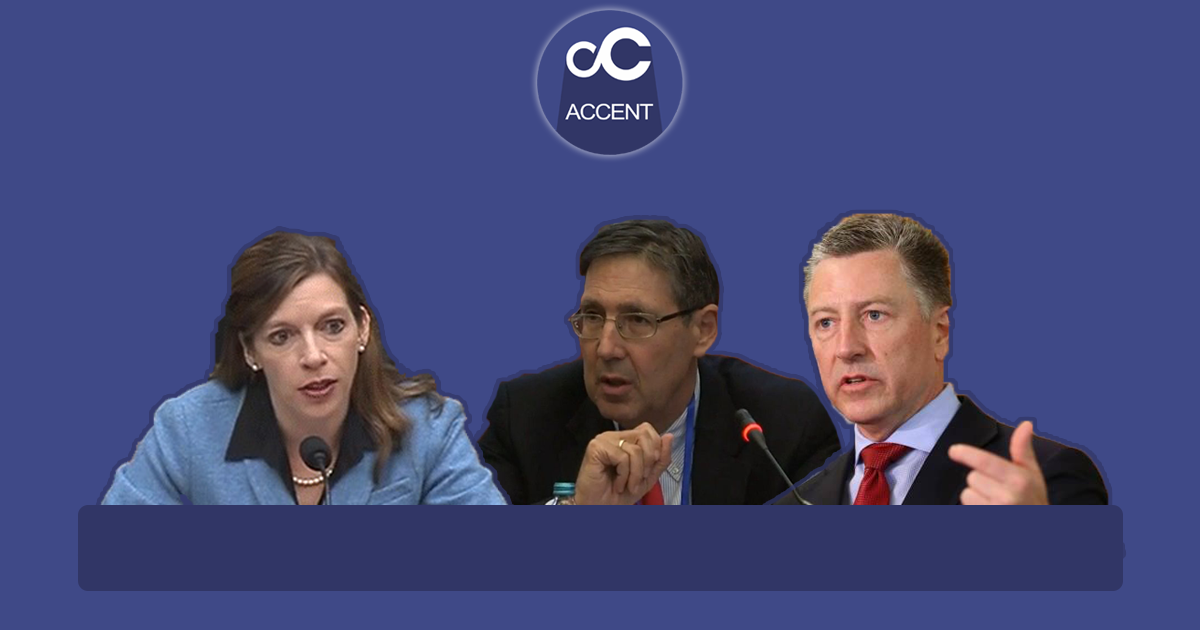
Experts from the U.S. and Georgia speak about expectations regarding Georgia after the 2024 U.S. presidential election
15/11/2024 10:24:11 Politic
The outcome of the U.S. presidential elections in 2024 is going to have a significant impact on a global scale, according to the Georgian Institute of Politics (GIP).
"Foreign policy of the new administration is going to have direct implications for the ongoing wars in Ukraine and the Middle East as well for Black Sea region. The U.S. presidential race of 2024 was particularly important for Georgia, as relations between the two countries have recently reached its lowest point ever.
For Georgia the United States has been one of the major allies in its efforts to strengthen security, advance democratic reforms and counterbalance Russian influence in the region. However, recent developments in Georgia have brought some tensions in the U.S.-Georgia relations. Issues like democratic backsliding in Georgia and shifting U.S. foreign policy priorities have introduced new complexities into the relationship. As Georgia faces significant internal challenges, the Trump administration’s policy towards the region is going to have a major impact on Georgia’s internal and external relations in the nearest future," GIP said.
At the request of the Georgian Institute of Politics (GIP), selected experts from the U.S. and Georgia have given their responses to the following two questions:
What do you think will be the main priorities of the new U.S. administration in its relations with Georgia after the 2024 elections, and is there an expectation that strategic assistance and support for Georgia could change? What factors might influence this process?
How might changes in U.S. foreign policy impact Georgia’s integration in NATO and the European Union, and what expectations should Georgia have from the new administration regarding the support for democratic reforms?
"For better or worse, Georgia was not an issue in the U.S. presidential election campaign and will remain the purview of the U.S. government’s professionals rather than political appointees. As a result, the current U.S. approach will continue until/unless some dramatic action-forcing event occurs, such as either the end of Russia’s war on Ukraine or renewed Russian military action in Georgia, I don’t expect this second Trump administration to pay any more attention to Georgia’s potential evolution into a healthier democracy and member of the Transatlantic family than did the first Trump administration, in sharp contrast to the administration of George W. Bush. President-elect Trump has shown little interest in the development of democracy abroad and many people in the U.S. believe he is trying to undermine U.S. democratic institutions to consolidate his personal political power.And his lack of enthusiasm for NATO is well known, with him infamously asking whether NATO was obsolete.Unfortunately, any attention the Trump administration pays to Georgia will derive from its effort to broker an end to Russia’s war on Ukraine. In brief, I don’t expect President Trump to focus on Georgia’s integration into NATO or the EU or to pay attention to Georgia’s democratic reforms. I wish I could be less pessimistic", Ambassador Matthew Bryza (Managing Partner, Ballard Partners, former Deputy Assistant Secretary of State (2005-2009)) told GIP.
Prof. Neil Macfarlane (t. Anne’s College, University of Oxford) is sure that things will change much.
"Georgia was very much on people’s minds during the election period in the USA. The problem was that the Georgia on people’s minds was not your Georgia. I am not sure that things will change much. A number of Georgian interior ministry and judicial officials are now under weak sanctions, US assistance has been curtailed and, in view of irregularities in the recent election and the impending State Department’s review of US assistance, these measures may be widened and strengthened. This is because your Georgia is not a priority for the US now and will likely not be for the new administration. The key policy areas are China, the Middle East, Ukraine, and immigration. Policy regarding Georgia lies largely a couple layers down in the bureaucracy. For small non-priority states, the State Department implements general policy guidelines. If the policy guidelines change, that works its way down the ladder. They stay constant, unless the president or the Secretary of State has an interest.
There has been speculation that Orban’s close relationship with both the GD and Trump might push America towards a rapprochement with the Georgian Dream government. I doubt that. Although Orban might suggest that the US should loosen up on Georgia, I doubt that Trump would remember the conversation. Even if he did, there is no reason for him to dig that far down the bureaucratic chain. He has bigger fish to fry.
The world already knows that the only certainty with Mr. Trump is uncertainty.” (New York Times, 11/6/24) This is not only true of Trump; the future is an uncertain place where one can assess probabilities, but where there is no certainty. With this in mind, I doubt that U.S. policy towards Georgia will change much, for reasons already stated. Georgian integration in NATO is stalled. It is simply not on the agenda at the moment. Even if Trump weighed in in favour of Georgia, I doubt it would alter things, since NATO operates by consensus. And Trump has his own doubts about NATO anyway
Regarding the EU, since the US is not a member, I don’t think what the US might do would have any significant impact on EU integration. Georgia’s candidacy has been suspended. That will not change unless the “Agents of Foreign Influence” law and the LGBTQ legislation are cancelled. The EU may also push for a thorough investigation of the recent elections. As for US support of democratic reform in Georgia, this will continue (perhaps in a more muted way), for the simple reason that it would take intervention from senior leadership to change it. They will not be focused on democratic reform in Georgia. In other words, the Georgian Dream's hope for an easier time with the EU and the US after Trump’s victory is likely misplaced.” He told GIP.
Hon. Kenneth S. Yalowitz (Global Fellow, Kennan Institute & Global Fellow, Polar Institute - Wilson Center, Former US ambassadorto Georgia) said that "the incoming Trump administration will have to focus on many urgent foreign policy issues: the Ukraine/Russia war; the hostilities in the Middle East; China; Iran, and Sudan."
"President Biden was openly critical of the recent seriously flawed Georgian elections and there has been deep concern in the US Congress and Europe about Georgia's slide backwards in democracy building. I do not expect any significant changes in the US approach. It is up to Georgia Dream not to implement the foreign agent’s law, permit an independent study of the election results, and not crack down on the opposition and ongoing street protests. Continuation of critical statements about the US, NGOs and the ”global war party” will not help.
The pace of Georgia’s integration into the EU and NATO will depend on Georgia’s future policies. Membership accession progress to the EU has been blocked due to Georgia’s backwards steps in democracy building and NATO membership will also be affected. If Georgia genuinely aspires to membership in both organizations, it will have to demonstrate respect for democratic norms. Empty policy statements will not work. As for US aid, I would expect the focus to be on assisting NGOs and democratic reforms," he told GIP.
According to Prof. Lincoln Mitchell (Adjunct Research Scholar in the Arnold A. Saltzman Institute of War and Peace Studies, Adjunct Associate Professor of Political Science, Columbia University), "there will be less support for democratic reform in Georgia from the White House."
"Let’s not overthink this. Donald Trump has what could charitably be described as an unhealthy sympathy for Vladimir Putin’s view of the world. This means that there will be less support for democratic reform in Georgia from the White House. This may not have an impact right away because Georgia will be a low priority for the new administration, so for some time things will continue normally. However, at the end of the day, Trump is unlikely to push back against Putin with regards to Georgia.
The Trump administration will have no interest in expanding NATO and will not focus much on who does or does not get into the European Union. The best case for democrats in Georgia is that Trump is too busy implementing his strange and dangerous plans for the US to focus on Georgia," Mitchell told GIP.
Dr. Eteri Tsintsadze-Maass (Assistant Professor in the Department of Political Science and History at Hampton University) said that "the U.S.-Georgia relationship may not get worse, as it is already strained, but even a positive relationship is unlikely to see Trump strongly support democratic reforms in Georgia or its integration into the EU or NATO."
"Both the international and domestic contexts of the U.S.-Georgia relations have changed since Trump’s first term. While the implications for that relationship remain uncertain, Trump's foreign policy priorities before 2021 and his campaign rhetoric ahead of the 2024 elections can help us inform our expectations. One thing is evident: strong and weak countries alike are bracing for four years of uncertainty, irrespective of their historical ties to the United States or their current status as allies or rivals. High-profile national and international meetings aiming to develop strategies for Trump’s second term have already begun.
The U.S.-Georgia relationship may not get worse, as it is already strained, but even a positive relationship is unlikely to see Trump strongly support democratic reforms in Georgia or its integration into the EU or NATO. During his first term, Trump significantly departed from previous U.S. leaders (of either party) regarding foreign aid, democracy promotion, long-term economic and security partnerships, and, more broadly, leading a rules-based international order. He described NATO as “obsolete,” threatening to leave that alliance along with other international organizations. Combined with his transactional approach to diplomacy, such rhetoric must worry non-NATO U.S. partners like Ukraine, Taiwan, or Georgia as well. Far-right parties and illiberal leaders like Hungary’s Viktor Orbán have notably been vocal in cheering for Trump. Facing such uncertainties, it is crucial for Georgia and similarly vulnerable countries to demonstrate internal resilience against authoritarian tendencies, unify their foreign policy objectives, and maintain a good relationship with the United States without compromising their own democratic principles," she told GIP.









